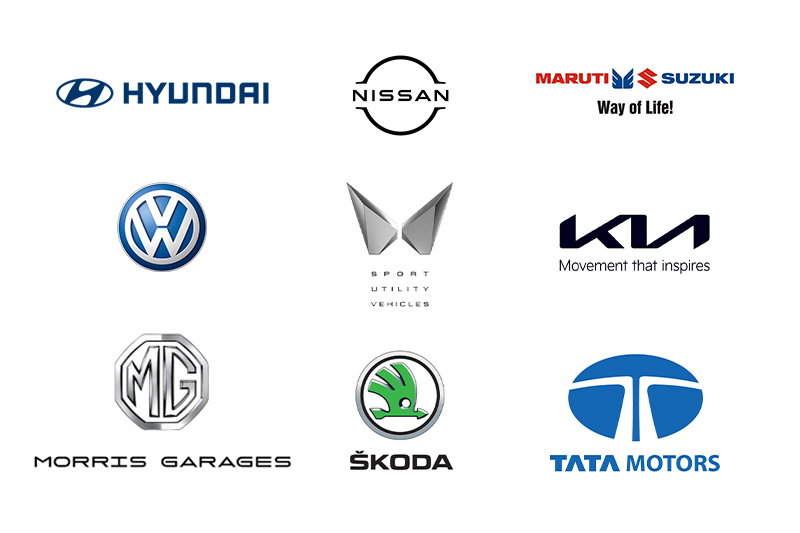The Indian automotive industry achieved a remarkable milestone in 2024, with vehicle retail sales growing by 9% to reach a record 26.1 million units. This marked a full recovery from the pandemic-induced slowdown, surpassing the pre-Covid peak of 25.4 million units in 2018. Here's a detailed brand-wise analysis of the year's performance.
Maruti Suzuki
Maruti Suzuki India Limited (MSIL) continued its dominance in the passenger vehicle (PV) segment. The company reported its highest-ever monthly sales in December 2024, with retail sales of 252,692 units. For the calendar year, Maruti Suzuki sold a record 1,790,877 vehicles, surpassing its previous best in 2018. With just nine days of network stock, Maruti’s strong performance was attributed to robust demand during the festive season and effective inventory management. This achievement highlights the brand’s consistent appeal and market leadership.
Mahindra & Mahindra (M&M)
M&M demonstrated significant growth across its automotive and farm equipment divisions. In December 2024, the automaker recorded total auto sales of 69,768 units, marking a 16% year-on-year (YoY) increase. The utility vehicle segment led the charge with 41,424 domestic sales, an 18% YoY rise. The commercial vehicle segment contributed 19,502 units domestically, while exports surged by 70% to 3,092 units. The farm equipment sector also showed robust growth, with domestic tractor sales rising by 22% to 22,019 units, driven by positive agricultural sentiment and favorable reservoir levels. M&M’s strong performance was further underscored by its recognition as a global leader in the Dow Jones Sustainability Index (DJSI).
Tata Motors
Tata Motors maintained steady growth, particularly in the electric vehicle (EV) segment. The company’s December 2024 sales rose by 2% YoY to 44,230 units. EV sales reached new heights, with 1.95 million units sold in 2024, reflecting a 30% increase from the previous year. Tata’s focus on introducing new SUVs and strengthening its EV leadership played a key role in its success. Despite challenges such as high inventory levels earlier in the year, Tata Motors leveraged the festive season to boost sales and remains optimistic about further growth in 2025.
Toyota Kirloskar Motor (TKM)
TKM achieved a 16.44% YoY increase in domestic sales in December 2024, selling 24,887 units compared to 21,372 units in the same period the previous year. This growth highlights Toyota’s ability to adapt to market dynamics and sustain demand for its models.
JSW MG Motor India
MG Motor India recorded an impressive 55% YoY growth in December 2024, with wholesales reaching 7,516 units compared to 4,848 units in December 2023. The brand’s focus on innovation and customer-centric strategies has helped it gain a stronger foothold in the Indian market.
Hyundai, Honda, and Nissan
Not all brands shared the same success. Hyundai Motor India reported a slight decline of 1.3% YoY in December 2024, with sales dropping to 42,208 units. Similarly, Honda Cars India experienced a significant 29% YoY decline, selling only 5,603 units compared to 7,902 units in December 2023. Nissan India also struggled to match its previous year’s performance, highlighting challenges in maintaining competitive momentum.
Commercial Vehicles and Tractors
The commercial vehicle segment’s performance was influenced by government infrastructure spending. While Tata Motors faced challenges, companies like Volvo Eicher Commercial and M&M reported growth. In the tractor segment, M&M’s domestic sales grew by 9% YoY to 19,502 units. However, Escorts Kubota experienced a 12.5% YoY decline, reflecting varied market conditions.
Electric Vehicles and Future Outlook
The EV market continued its upward trajectory, with penetration rising to 2.4% in 2024. Industry leaders like Tata Motors are optimistic about further growth, driven by increasing demand for greener and safer vehicles. While the overall PV segment grew by 2.4% in 2024, experts predict subdued growth in 2025 due to economic uncertainties and evolving market dynamics.
In conclusion, 2024 was a landmark year for the Indian automotive industry, marked by record sales and significant strides in electrification. Brands like Maruti Suzuki, M&M, and Tata Motors led the charge, while others faced challenges. As the industry looks ahead to 2025, innovation, sustainability, and customer-centric strategies will remain key to navigating a dynamic market landscape.



.webp)

.jpg)